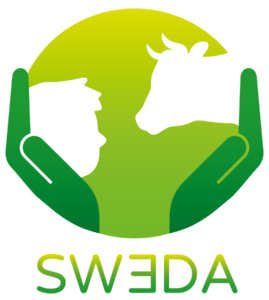The working team group of the University of Perugia is involved in implementing the SWEDA project in different ways. On one hand, we are working to implement all the materials concerning the MODULE 1 SUSTAINABLE AGRO-LIVESTOCK FARM AND ANIMAL WELFARE: METHOD, TECHNIQUE, AND EXPERIENCES with the aim to share the main and useful concepts with the students of the course concerning the general overview of agro-sustainability and both technical and economic aspects connected with it. On the other hand, aiming to give a chance to those who were interested to participate, we shared the SWEDA course information among all the students of the University through emails list and personal contacts. Moreover, experts and farmers were contacted by University teams to collect differents experiences and knowledge concerning the matters.
All of these different multidisciplinary backgrounds, in terms of academic and not, knowledge, competencies, practical skills, are systematizing in order to to be able to contribute to addressing gaps and discrepancies in the field of use of resources in rural areas aiming at diversification of agricultural activities, based on sustainability. In fact, also the scientific debate and political one on sustainability are placing more emphasis on how theory can be put into practice, in Italy, and in worldwide area.
This is confirmed further by COVID-19 that despite having deeply impacted all economic sectors in Italy, it impacted less on the Italian agro-food chain; in fact, it has demonstrated great resilience to guarantee the supply of food to consumers (of course, it depends on the specific sector/linked sector, e.g foodservice, etc.). These results are due to all Italian farms, the big, medium, and the small ones. Focusing on the smaller farms, the pandemic also strengthened the ask for locally sourced food creating and/or reinforcing more connections to local producers.

